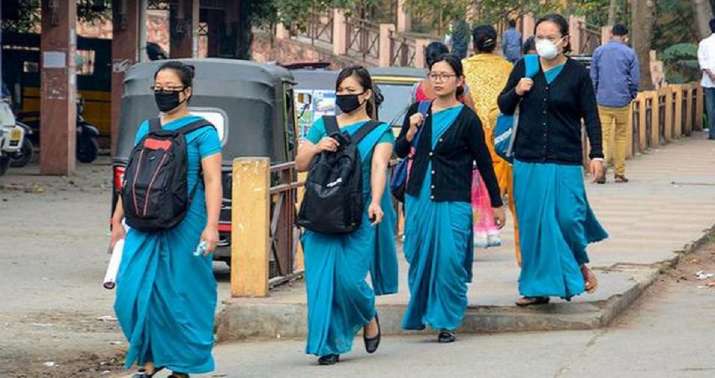
Is Nagaland turning its back on stranded citizens to maintain COVID-free image?

In a bid to keep the state COVID-19 free, the Nagaland government has offered to pay a one-time relief of ₹10,000 each to its stranded citizens who would prefer not to return to their home until the virus is contained.
The decision, however, stirred a controversy as the offer has a catch, which left many from the state high and dry in different cities outside the northeast.
The Neiphiu Rio-led People’s Democratic Alliance (PDA) government in the state announced that the beneficiaries of its largesse will only be those who had earlier registered with the government, seeking to return home. But many of the stranded citizens stated that by the time they came to know about the registration process, it was already over.
“I tried to register myself on May 11 after being informed by a friend about the process. But I could not download the form as the process was closed at 12 noon that very day. I was late by a few hours,” said Tiainla Jamir, a beautician who stays in New Delhi’s Kotla.
Related news: No COVID-19, but Nagaland lacks health infra to deal with crisis
“With no salary for the last two months, I was somehow making my ends meet, hoping to catch the first train home. But now, even that window is closed,” she said.
She would not even be entitled to the ₹10,000 as she could not fill the “returnee declaration” form.
Many even took to social media to vent their ire asking whether they were not considered citizens of the state.
Nagaland chief secretary Temjen Toy, interacting with a group of media persons in Kohima on Friday said, the relief was offered only to those who opted to stay back after registering with the government for homecoming. “Others are out of our radar, since they had not applied,” he said.
To bring back home its stranded citizens, the Nagaland government on May 8 started online registration by asking people to fill returnees’ declaration form from its website.
The registration was for those stranded outside the seven north-eastern states.
Three days after its launch, the government stopped the registration process. By then only 18,350 persons, mostly students, could enlist.
“This number did not incorporate even half of the stranded citizens,” said Hinoto P Aomi, president of the Naga Students Union Delhi (NSUD).
Questioning the government’s intent, he said around 73,000 people from the state registered when the government had earlier, on April 20, announced financial support of ₹3,000, ₹4,000, and ₹2,000 to stranded students, working persons and patients respectively.
“The government could have used that database or availed the service of the Naga students union, which has a very active presence among the community in all the major cities,” Aomi said, criticising the government for not providing adequate time to the people for the registration.
Related news: Amid lockdown, announcer runs community radio for 333 hours alone
A day after abruptly stopping the registration process, the government on May 12 made the ₹10,000 offer to those who would change their mind and opt to stay back.
The move is clearly to discourage its own citizens from returning home as the state did not have adequate quarantine facilities, says Ato Yepthomi, a senior leader of the National People’s Party.
Until 4.30 pm on May 16, the Nagaland government in a media briefing said 3,679 citizens, who had earlier applied to return, decided to avail the one-time relief.
The NSUD president, however, said that many of those who had opted to stay back to avail the money were now rueing their decision as they realized that it was just a one-time grant and that their stay would be longer than what they anticipated.
“With ₹10,000 how long can a person sustain in a city. Many of our youths who work in unorganised sectors in the national capital region have lost their jobs due to the lockdown and are unable to pay even house rent,” Aomi said.
“The government told us that it will rethink its decision, but so far no corrective step has been taken,” he added.
The influential Naga Students Federation (NSF), many tribal bodies and political parties appealed to the government that the financial assistance should be granted even to those who did not submit the returnee declaration form.
“Enough opportunity should be given to all stranded citizens to come home. They should not feel abandoned by our government at this hour of crisis. Those who will volunteer to stay back should be given adequate financial help,” Yepthomi demanded.
Evacuation process of those who had filled the forms would start from the middle of the next week, government sources said.

